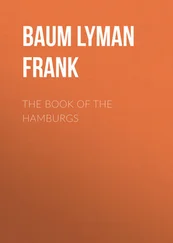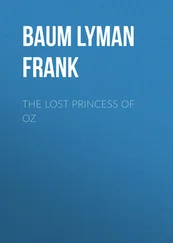L. Baum - The Last Egyptian
Здесь есть возможность читать онлайн «L. Baum - The Last Egyptian» весь текст электронной книги совершенно бесплатно (целиком полную версию без сокращений). В некоторых случаях можно слушать аудио, скачать через торрент в формате fb2 и присутствует краткое содержание. Год выпуска: 2019, Издательство: epubBooks Classics, Жанр: Прочие приключения, на английском языке. Описание произведения, (предисловие) а так же отзывы посетителей доступны на портале библиотеки ЛибКат.
- Название:The Last Egyptian
- Автор:
- Издательство:epubBooks Classics
- Жанр:
- Год:2019
- ISBN:нет данных
- Рейтинг книги:4 / 5. Голосов: 1
-
Избранное:Добавить в избранное
- Отзывы:
-
Ваша оценка:
- 80
- 1
- 2
- 3
- 4
- 5
The Last Egyptian: краткое содержание, описание и аннотация
Предлагаем к чтению аннотацию, описание, краткое содержание или предисловие (зависит от того, что написал сам автор книги «The Last Egyptian»). Если вы не нашли необходимую информацию о книге — напишите в комментариях, мы постараемся отыскать её.
The Last Egyptian — читать онлайн бесплатно полную книгу (весь текст) целиком
Ниже представлен текст книги, разбитый по страницам. Система сохранения места последней прочитанной страницы, позволяет с удобством читать онлайн бесплатно книгу «The Last Egyptian», без необходимости каждый раз заново искать на чём Вы остановились. Поставьте закладку, и сможете в любой момент перейти на страницу, на которой закончили чтение.
Интервал:
Закладка:
Kāra stared with an amazement akin to fear; for the talisman lay upon the floor just beneath the triple circlet of gold whence he had pried it with his dagger. It had not only escaped from its unlawful possessor, but had returned to where the ancient Egyptian had originally placed it; and now it mocked him with its magical brilliance.
He could have reached out a hand and seized it in his grasp; but so great was his horror of the curse of Ahtka–Rā that his impulse was rather to shrink from the demoniacal gem.
How wonderful was its brilliance! It lighted the sarcophagus and the wall beyond. It lighted the floor with a broad streak of yellow light. It lighted even Kāra himself, groveling before it on hands and knees. No ordinary gem could do this. It was sorcery, it was—
He uttered a scream that echoed horribly through the vault and sprang to his feet; for a glance over his shoulder had betrayed the secret of the strange illumination.
At the lower end of the room stood a man holding above his head a lighted candle. He was motionless, gazing curiously at the prone form of the Egyptian wallowing before a tomb encrusted with precious stones.
But now he returned Kāra’s scream with a startled cry, and turned involuntarily as if to fly, when the other sprang up and advanced rapidly toward him.
Down past the rows of silent mummies sped the Egyptian, while Consinor awaited him in a stupor of indecision. Then, finally realizing his danger, he dashed the candle to the ground and ran up the passage as fast as he could go.
Kāra, although once more plunged into darkness by this action, knew the way much better than the Englishman, and did not for an instant hesitate to follow him. The curse of Ahtka–Rā was now forgotten—the talisman forgotten. Kāra realized that another had discovered his secret, and the safety of the treasure demanded that the intruder should not be permitted to leave the tomb alive.
Consinor, on his part, was slower to comprehend the situation; yet there was no doubt the Egyptian meant mischief, and the only means of escape lay up the long, narrow passage. As he fled he collided with the huge pillar that divided the library from the mummy chamber and rebounded against the wall of the gallery, falling heavily to the ground.
In an instant Kāra was upon him, his knee pressing the viscount’s breast, his slender, talon–like fingers twined around his enemy’s throat.
But when it came to wrestling, the Englishman was no mean antagonist. As the native released one hand to search in his bosom for the bronze dagger, Consinor suddenly grasped him around the middle and easily threw him over, reversing their positions, his body resting upon and weighing down that of the slighter Egyptian. Failing to find the knife, Kāra again gripped the other’s throat with his powerful fingers.
There was but one thing to do in this desperate emergency. Consinor raised his enemy’s head and dashed it against the stone floor. The Egyptian’s grasp relaxed; he lost consciousness, and, tearing himself from the fatal embrace, the viscount rose slowly to his feet, his brain reeling, his breath gradually returning to him in short gasps.
For a few moments he leaned against the wall for support; then, rousing himself to action, he tottered slowly along the passage, feeling his way by keeping one hand against the wall of rock.
He had not proceeded far, however, when a rustling sound warned him that Kāra had returned to life. His ears, rendered sensitive by his fearful plight, told him that his enemy had arisen, and he heard the fall of footsteps pursuing him.
But Consinor was already retreating as rapidly as possible, impelled to swiftness by the spur of fear. Proceeding through the intense darkness, at times he struck the sides of the rocky gallery with a force that nearly knocked him off his feet; but in the main it was a smooth and straight way, and the Egyptian did not seem to gain perceptibly upon him, being evidently as dazed by the blow upon his head as was the Englishman by the throttling he had endured.
And so they pressed on, panting along through the stifling atmosphere, until suddenly Consinor ran full against the rocky end of the passage and fell half stunned upon the floor. He heard the pattering of Kāra’s footsteps, the sound indicating that the Egyptian was gradually drawing nearer, and, dazed as he was, realized that sudden death menaced him. With a final effort he sprang to his feet, tumbled through the circular opening, and slammed the door into place with all his remaining strength.
He heard the sharp click of the bolts as they shot into their sockets, and the muffled cry of terror from the imprisoned Kāra.
Thoroughly appalled at what he had done, he again arose to his feet and moved rapidly along toward the entrance to the outer corridor.
For a certain distance the floor of this natural passage was as smooth as that of the artificial one, and before he came to the rougher portion, Consinor saw a dim light ahead that came from the opening in the wall of the room.
All semblance of composure had now deserted him. His cowardice fully manifested itself at his first discovery, and he was not sure, even now that the bronze bolts shut in his enemy, that he was safe from pursuit. With Kāra’s despairing cry still ringing in his ears, he reached the wall, passed through the opening, drew the stone into place behind him as a further precaution, and then sped in a panic across the room.
Nephthys heard him coming and thought it was Kāra. As he tore down the matting and dashed through the arch, the girl rose to her feet and viciously thrust out her hand.
Consinor fell with a moan at her feet, drenching the hard ground with a stream of blood. By the time Tadros had rushed to his assistance he was dead.
The dragoman, on ascertaining that the victim was his accomplice, was frantic with despair. He rushed into the dwelling and gazed around him anxiously. The room appeared to his eyes just as it had a hundred times before. Kāra was nowhere to be seen, and the secret that Tadros had plotted so artfully to discover was lost to him forever.
“Confound you, Nephthys!” he cried, returning to the archway, “you’ve killed the wrong man and eternally ruined my fortunes!”
But the girl had disappeared. In her mother’s hut she had quietly seated herself at the loom and resumed her work at the shuttle.

Consinor fell with a moan at her feet, drenching the hard earth with a stream of blood
Chapter XXVI
The Dragoman Wins
Antar, the sheik, waited for Kāra until his patience was exhausted; then he left the dahabeah and came up through the sands to Fedah to discover, if possible, what had delayed the prince from returning with his promised reward. To Antar this cluster of hovels seemed mean and unattractive when compared with his own village, and these hills were not likely places for treasure tombs. He knew that the French and Italian excavators had been all over them, and found only some crocodile mummy pits.
The sheik grew suddenly suspicious. Kāra’s promises were too extravagant to be genuine; doubtless he had deceived Antar from the first, and sought to obtain his services without payment. It was true that Kāra was reputed in Cairo to be wealthy, but he might easily have squandered his inheritance long ago. One thing Antar was certain of—the Egyptian prince must produce his treasure at once or the sheik, thinking he was duped, would undertake to exact a bit of vengeance on his own account.
Thus musing, he turned the corner of the hill and came full upon Tadros, who was expecting him. The dragoman’s thumbs were thrust into the pockets of his gorgeous silver and blue vest. He stood with his feet spread well apart, in an attitude of dejection; his countenance was sorrowful and discontented.
Читать дальшеИнтервал:
Закладка:
Похожие книги на «The Last Egyptian»
Представляем Вашему вниманию похожие книги на «The Last Egyptian» списком для выбора. Мы отобрали схожую по названию и смыслу литературу в надежде предоставить читателям больше вариантов отыскать новые, интересные, ещё непрочитанные произведения.
Обсуждение, отзывы о книге «The Last Egyptian» и просто собственные мнения читателей. Оставьте ваши комментарии, напишите, что Вы думаете о произведении, его смысле или главных героях. Укажите что конкретно понравилось, а что нет, и почему Вы так считаете.












